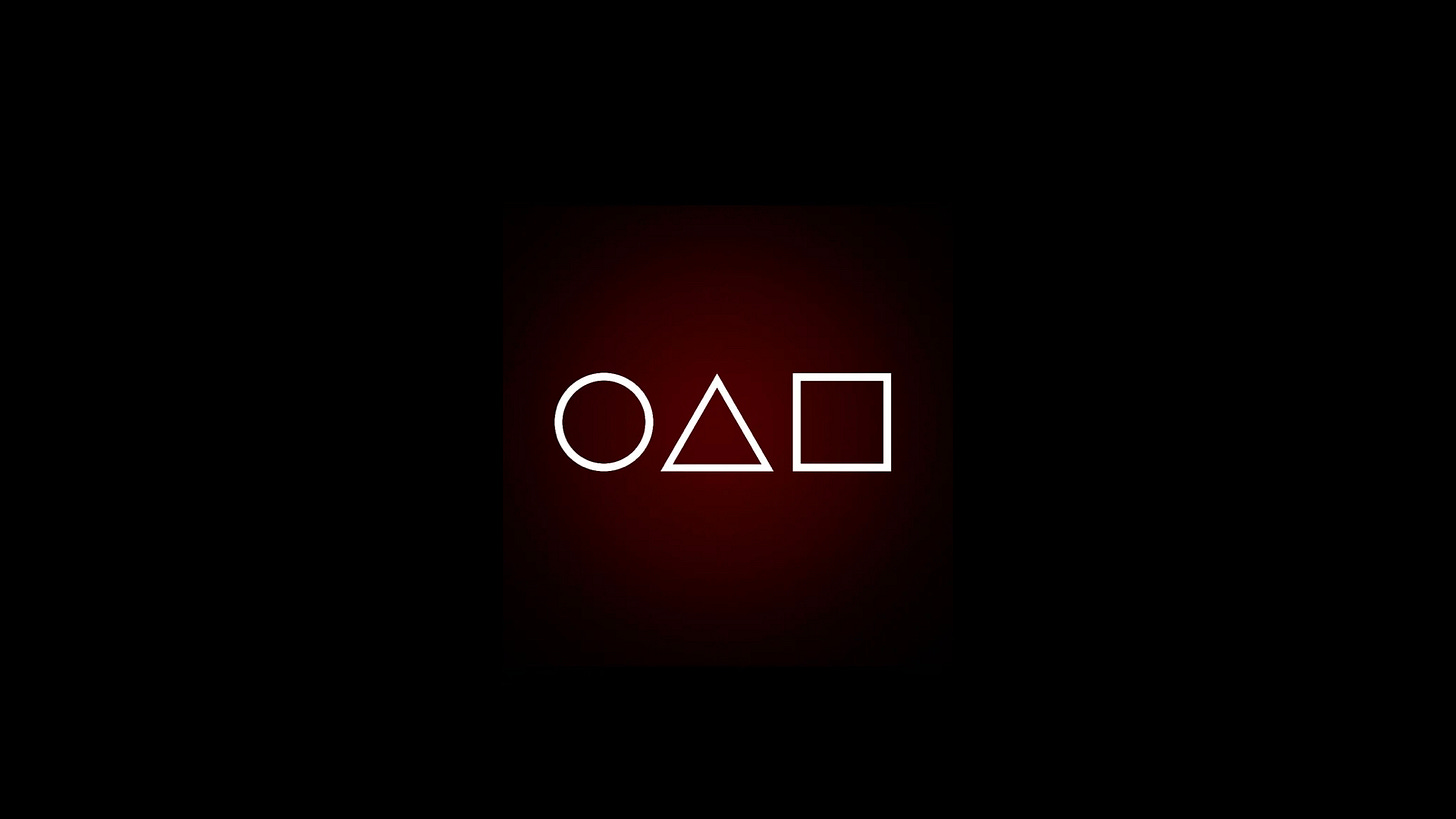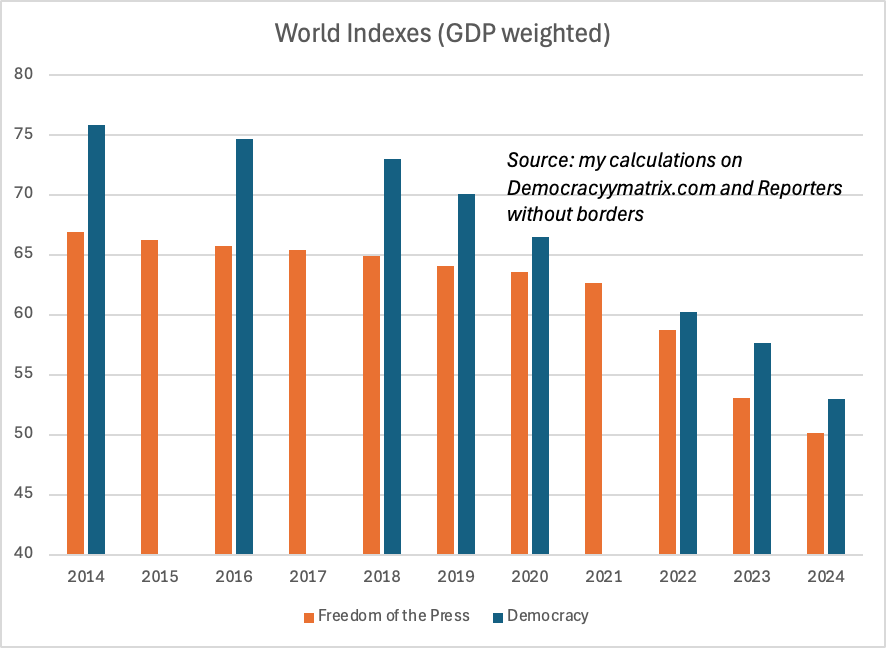Every action, word, and thought that comes from Donald Trump is received and scrutinised thoroughly by opinion makers and concerned citizens alike.
The prevailing attitude of the ‘intellectuals’ – a group including ‘academics, opinion journalists, and think tank experts,’ as described in this gem by Michael Lim – is that the man (Trump) is out of his mind. Why does he have such an affinity for tariffs when centuries of academic research demonstrate that they significantly diminish global welfare? Doesn’t he realise that they are inflationary? And Greenland, Canada? And the Club Med Gaza Strip? Does he take his cues from the Golden Girls? And criticising the OpenAI team simply because China has attained a similar AI status with spare change? Doesn’t he care about national security? And those migrants in chains… tsk, tsk, tsk. All those foreign aid programmes the US has been involved in: doesn’t he grasp that it is America’s role as a global peacekeeper? And cutting public spending on bureaucracy? All those poor employees. And more, and more, and more.
From a height of 10,000 feet, those claims already appear hypocritical. Tariffs inflationary? See what my friend Marco Annunziata has to say about that. Cutting the number of civil servants? Europe should look into this, instead of being trapped in an eternal fight between the Commission (itself a cove of bureaucracy) and member states.
I could continue, but let us ascend instead to 20,000 feet. There, a terrifying question materialises: what if?
My point, you see, is that the world – particularly its societal and political aspects – may be in a far worse condition than even the most pessimistic among us believes, comfortably settled in our sofas. For instance, the decline of civil liberties is troubling. Drawing from the World Press Freedom Index compiled by Reporters Without Borders, I have calculated a global GDP-weighted index that indicates a significant decrease in freedom. The chart aligns with another similar assessment, where I employed the same method to evaluate the state of democracy worldwide.
But there are plenty of other examples indicating that societal and political metrics are rapidly deteriorating. The increased use of surveillance tools, such as facial recognition, in both authoritarian and democratic states erodes the right to privacy. Social media presents the illusion of freedom of speech, yet in reality, it devalues it, submerged beneath the most absurd opinions and falsehoods. Consider the rising levels of social polarisation in developed countries, as evidenced by surveys from the Pew Research Center ( here and here), and how societal fragmentation undermines political stability and economic productivity. Global governance is weakening due to the reduced effectiveness of global institutions like the WTO and UN. The number of people forcibly displaced due to persecution, conflict, violence, and human rights violations doubled in the last decade.
The way I see this degradation of the social and political situation is that it aligns with a shift in society – well articulated in the works of Robert D. Putnam and Charles Taylor, here and here – that has been spiralling out of control since the 1970s: that of individualism and self-reference. Taylor explains it much better:
‘Along with the ideal, a very important distinction gets fudged over in this polarized debate:[…] “subjectivation”: that is, things centre more and more on the subject, and in a host of ways. Things that were once settled by some external reality — traditional law, say, or nature — are now referred to our choice. Issues where we were meant to accept the dictates of authority we now have to think out for ourselves.’
If we consider the last ten years of international relations history this way, the question arises as to whether we are in an accelerated phase of subjectivation, only now for nations rather than individuals. While the world's leaders, donned in gloves and Cossack hats, dawdle in Davos – an annual obligation as unavoidable as our daily visit to the toilet – feigning unity and collaboration before CNCB cameras, the true decision-making centres are moving in the opposite direction: that of ‘I’ll do it myself’. The advocates of consensus – if they truly still exist – have only themselves to blame for their multi-decade abysmal record in addressing emergencies: from the 1938 Munich Conference to turning the serious issue of climate change into an inextricable set of rules and wishful thinking that even the most committed corporation or family would struggle to follow.
Considering Trump today, with his bombastic statements that intellectuals are quick to dismiss as insanity, the ‘what if’ question arises yet again. What if, I wonder, we are merely witnessing the honest acknowledgment of the capitulation of yesterday’s world – that of global cooperation, aid, agreements, global supply chains, free movement of capital and trade, and the integration of different religious and ethical infrastructures – and the reality of a new one? A ‘red light’ moment, where everything that was in motion during the ‘green light’ era should freeze?
Have we plunged, because the social and political situation is deteriorating so fast, into a great ‘subjectivation’ of global countries, where only the self matters, where one can only count on what one possesses – capital, natural endowments, labour, innovation – and on what one’s strength can permit one to take from another (let’s consider Greenland, since ‘it’s a big place, nobody uses it,’ as the Golden Girl says). A world of plunder, rather than sharing.
It’s a terrifying view, I know, but one that reflects so much of the social and political deterioration we are witnessing today, making it all the more frighteningly real. In my next post, I will outline a new geopolitical order that aligns with the subjectivism of nations. And it’s going to be chilling.






Excellent post as usual, Luca. My view is that we are witnessing an emperor-has-no-clothes moment. JD Vance in Munich offered a brutally honest depiction of how Europe is abandoning its democratic values through some of the mechanisms you mentioned. The attendees were shocked, because you can't say this. But the truth is that the 'green light' era had turned into a theater of hypocrisy on too many fronts. So I welcome this explicit subjectivism, and look forward to your chilling picture of the new order!